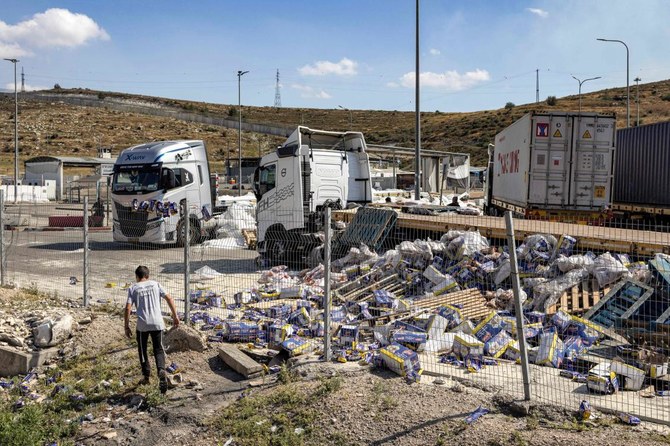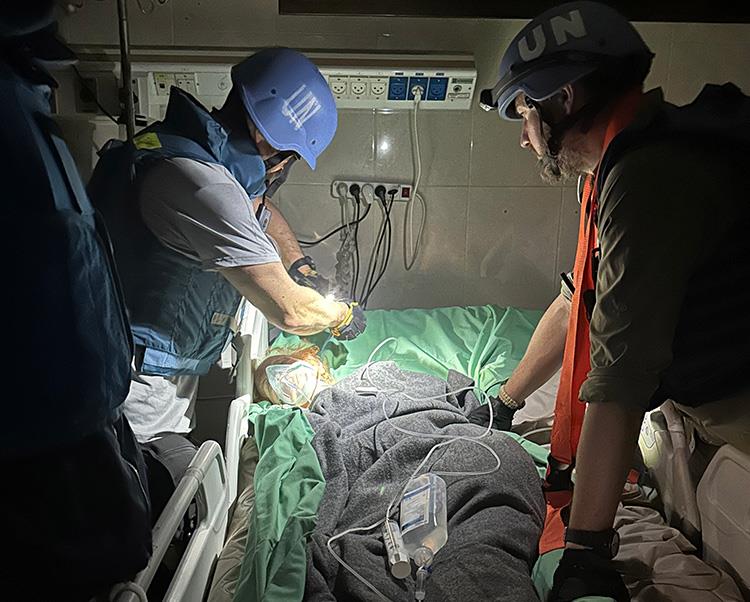
Pakistan planning to approach UN Security Council, PM Khan tells Parliament
NEW DELHI: New Delhi-based journalist Haziq Qadri is desperate to contact his family in the Kashmir Valley.
The writer has not been in touch with his family in Srinagar since Sunday evening when the Indian government downed the valley’s communication networks, including all phone lines.
Qadri is worried for their safety and said: “There is no way to know how my family is feeling or what state of mind they are in.”
Kashmir Valley and the adjoining areas have been completely cut off from the rest of India by New Delhi in an attempt to contain any violent reaction to its scrapping of Article 370 of the Indian constitution that guarantees special autonomous status to the state of Jammu and Kashmir.
Many Kashmiris in India say they are living in fear following the controversial decision and one university professor described the Indian government as being “at war with the people of Kashmir right now.”
Qadri told Arab News that due to the way the situation was unfolding he was worried about his own security in Delhi.
“Last night I called many of my Kashmiri friends at home because they were not feeling secure. They were not sure what might happen to them with the kind of jubilations some Indians are expressing with the abrogation of Article 370.
“Some of my friends studying in different colleges in India told me that they have been bullied by some Indian students. They are so nervous they don’t want to talk to anyone.
“I have been living in Delhi for the last five years and have lived in other parts of the country, but I have never felt as lonely and depressed as I feel now,” said Qadri.
Pakistan Prime Minister Imran Khan said his country was considering an approach to the UN Security Council. “We will fight it at every forum. We’re thinking how we can take it to International Court (of Justice) ... to the United Nations Security Council,” Khan told Pakistan’s Parliament.
We will fight it at every forum. We’re thinking how we can take it to International Court (of Justice) ... to the United Nations Security Council.
Imran Khan, Pakistan’s premier
Prof. Ghulam Mohamad Shah, of New Delhi-based Jamia Millia Islamia University (JMI), told Arab News: “I have never felt as helpless and angry as I have been since yesterday (Sunday). Never before has Kashmir faced this unprecedented situation in a normal time when you are not able to establish contact with family in the valley.
“This is an emergency-like situation. I have heard that the Kashmir administration has created six temporary jails on the pattern of Srinagar’s central jail to deal with the situation. Security forces are planning to arrest anyone who comes out to protest.
“What has happened in Kashmir is a constitutional coup by the central government. No due process was followed in revoking the special status that Kashmir enjoyed under the Indian constitution,” said Shah.
The professor, who comes from the city of Srinagar, said that by revoking Article 370 the Indian government had rendered mainstream political parties in the valley irrelevant and pushed even normal politicians “into the camps of militants.”
He added: “I feel very angry and agitated with the way the autonomous status of Kashmir has been taken away from us. It’s the saddest day of my life. A psychological barrier has been created between India and Kashmir with the political decision of (Prime Minister) Narendra Modi’s regime.”
Most Kashmiri students at JMI approached by Arab News were too afraid to speak.
“It’s a very different kind of situation for us. We have been advised not to venture out and to lie low. We are not able to contact our families so we cannot express our anxiety to them also,” said one student from Anantnag district.
Prof. S.A.R. Geelani of Delhi University said: “The Indian government is at war with the people of Kashmir right now. The whole valley has been turned into an open prison. I have been getting reports that army tanks are marching in south Kashmir.”
Geelani has been unable to speak to his wife and children in the valley for almost two days. “The whole episode reflects the very sad state of democracy in India. My Kashmiri fellows are very agitated. This will further alienate the masses in Kashmir. I think in time to come there could be lots of disturbance. The government has pushed the Kashmiris very hard this time thereby making the situation very volatile.” He noted that the celebrations of some Indians over the move was “disturbing.”
In the southern Indian city of Hyderabad, university students took to the streets on Monday evening in a small protest demanding the roll back of the government’s decision on Kashmir’s special status.
“I want to know what is happening in my state, but I am not able to speak to any member of my family in Kashmir. It’s unprecedented,” said Attaullah Niazi, a research scholar at the University of Hyderabad.
Hailing from the Poonch district of Jammu and Kashmir, Niazi added that “by revoking the special status the Indian government wants to change the demography of the Muslim-dominated state.
“Kashmiri students are living in fear and they are avoiding going out of the campus or their houses.”












